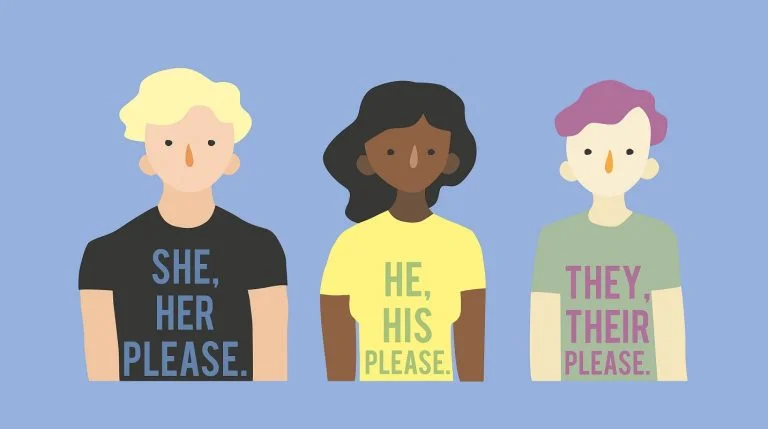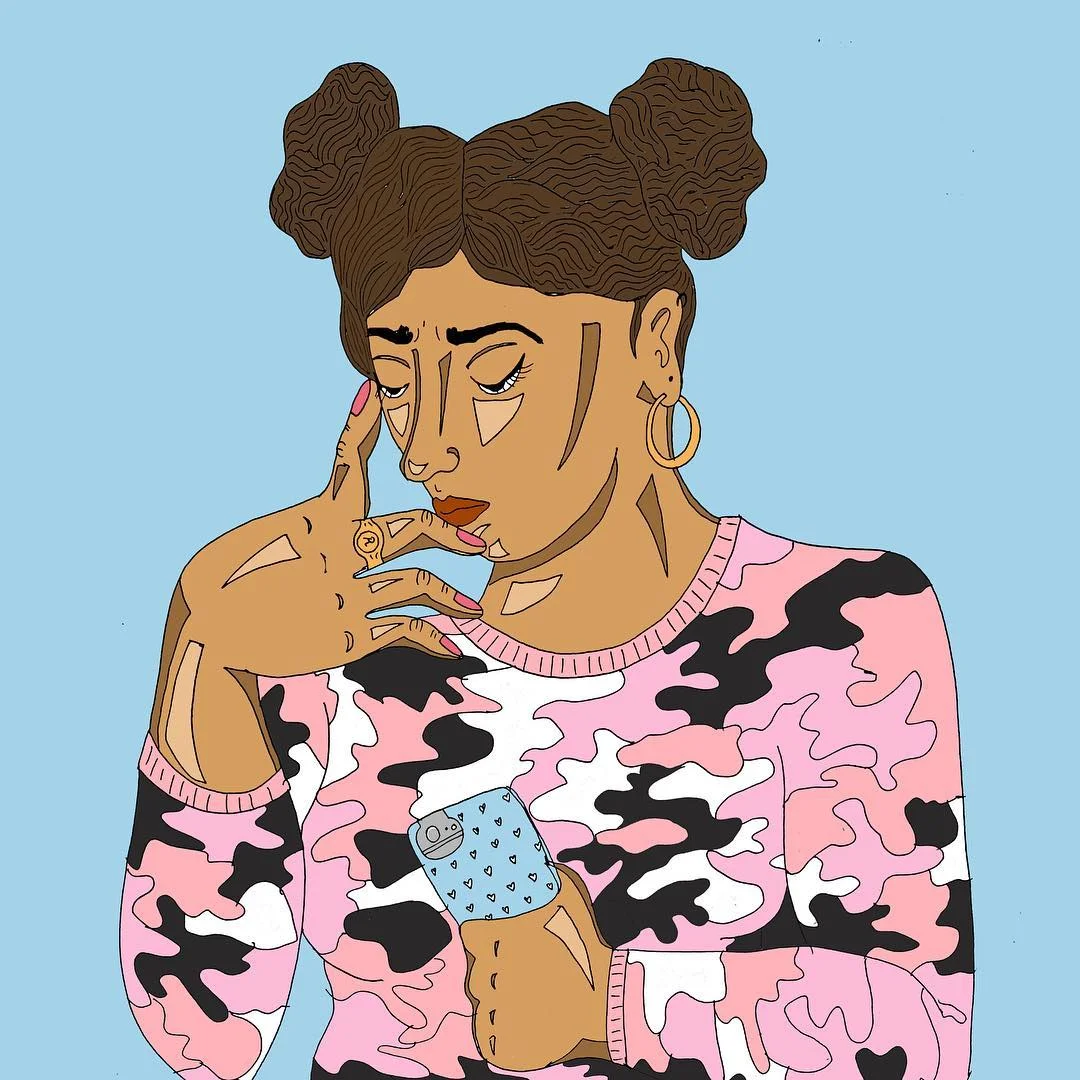See you on the internet: thoughts on the third place
You know that thing where a concept you sort of knew, but had never clearly articulated, rocks up and plonks itself right in front of your face in its own little Eureka moment?
Well, one sunny lockdown weekend, that happened to me.
I was reading Gretchen McCulloch’s Because Internet* (12/10 would recommend for the internetty word nerd in your life). In it, there’s a section where she describes how chat rooms, and later social media platforms, became places for people to just kinda… hang out.
They weren’t private, one-to-one exchanges between specific individuals, like emails or private chat. They were nonphysical places, where people with stuff in common – who might but don’t necessarily know each other – could post things and make comments. Bump into each other, if you will.
McCulloch compares scrolling down your Instagram or Facebook feed to walking down a hallway in high school, or wandering into your local on a Friday night. You might well arrange to meet specific friends there, but you’ve also got a fair chance of running into other people you know, and it’s fertile ground for making new friends.
In articulating this, McCulloch invoked the work of sociologist Ray Oldenburg, who coined the term “third place” to refer to our social surroundings outside of the first place (home), and the second place (work).
Places like pubs, cafes, barbershops, community centres, markets, shopping centres, places of worship, libraries, parks, clubs and organisations, towns squares, and activities like community meetings and bingo.
They have a few key characteristics:
“Oldenburg’s third places are first of all social centres, distinguished by an emphasis on conversation and playfulness, regular attendees who set the tone for newcomers, the freedom to come and go as you please, a lack of formal membership requirements, and a warm, unpretentious feeling of a home away from home.”
To me, as perhaps it will to you, this idea felt both new and forehead-smackingly obvious at the same time.
I couldn’t believe I’d been skipping around on this planet for a good three decades without having a word for this thing. Without even properly acknowledging and filing it as part of how I see the world.
Truth is, I hadn’t even looked at my physical third spaces through that lens before. Perhaps it’s because I live in an industrialised, capitalist context. Perhaps it’s just me being oblivious. But I never thought of them as worthy of the same – I don’t know, value? esteem? sense of space? – as work (where do your productivity) and home (where you get fed and slept and prepared to go out and be productive).
I valued them a lot, but on some level still apparently only assigned them the status of gaps-between-home-stuff-and-work-stuff.
As the figurative handprint faded from my face, my history started to rearrange itself around this concept.
Oldenburg’s community-building conception of third places is grounded in the physical, and those ones have been important to me, for sure. The corners of town where we’d lurk for hours on end at weekends as teenagers. The gigs. Later, the pub.
I also realised that I have tended to find my third places, to construct my social life, in more structured contexts: after-school activities, university societies, music ensembles, church, sports clubs…
And indeed online. Initially on MySpace and MSN (“are you online tonight?”), for I am that particular generation of millennial. Fleetingly, on BBM.** For a while, the odd forum, and the Blogspots of friends. For a spell in my late teens, I regularly posted poetry on a writing forum, and ‘hung out’ there almost every lunchtime.
Later on, I found a professional third place online in the #copywritersunite Twitter community founded by Vikki Ross, and its physical manifestation of quarterly meetups in pubs. It was professional-ish. It was networking, technically (anything for the travel to remain firmly tax-deductible). Early on in my career, it was a place where I got to practise being a professional human with a creative practice, around other people at various points in their careers. Crucially, it was outside my house, and my colleagues couldn’t see me.
Both IRL and online, #copywritersunite is a place where I might arrange to meet one or two specific people (hi Honor, Dibbsy, Kady), but where I *know* I’ll encounter a whole heap of others with whom I’d be glad to catch up.
Recently, of course, going out and about on purpose to bump into indeterminate numbers of people hasn’t really been de rigueur.
And herein lies the rub.
Learning about third places – reflecting on how I’ve enjoyed them, and how they’ve nourished me as a human – made me see (yet) a (nother) way we have had to adapt to life in a pandemic.
Pubs were among the first venues to be closed in the UK. For many, that’s a staple, perhaps even the only, third place, taken suddenly out of circulation.
Not long later, for those lucky enough to stay employed in jobs they can do from home (at least in theory), first and second places collapsed into each other almost overnight.
I’m in the privileged slice of people who can work remotely, and have been figuring out how to construct our second places inside our first places. Among housemates and partners and kids out of school, mostly in spaces that were only intended to serve one of these functions.
And then, each day, we try and dismantle it again, so we can do the first-place things like meals and laundry and Netflix without work looming over us.
All this is even more complicated if your first place isn’t one where you feel safe, or steady.
There have been periods in my life where my first place was in flux, or acclimatising to a change, and my second place was stressful. In those periods, I found the third place an absolutely essential tool in processing what was happening in the other two.
For the last little while, for our own safety and the safety of our communities, our physical third places have been out-of-bounds.
Which is rough, because they’re often our places of escape when the first two aren’t stable. So we’re having to find ways to recreate those, too.
Your first place becomes your local pub, your best friend’s living room, your yoga studio, your favourite restaurant, your mum’s kitchen, the cinema round the corner.
Delineation is everything. Boundaries. Mini transformations. Intentionality in the transition from one place to another.
That shit’s hard at the best of times, never mind while there’s an apocalypse on.
Online third places only go so far to making up the shortfall – we can’t expect quite the same things of them that our usual ones do for us. But we can perhaps reframe the time we spend in those places, and cut ourselves a bit of slack.
It’s attractive to use such a big shift in lifestyle as a springboard for resolute changes to screen-time-type habits – and there are plenty of bits of the internet I don’t want to look at too closely, or for too long, right now.
But while our physical third places are rearranging themselves to accommodate us as best they can during a pandemic, our online ones are earning their keep. Lurking on newly-founded crafting groups; adding to weird faddy Twitter hashtags (#ChangeALetterRuinAMovie anyone?); tagging friends in memes that cut to your very soul; doing Animal Crossing things that I don’t really know about because I don’t play Animal Crossing: these are the little things that keep us connected, remind us that we’re part of a community. They might have felt like a bit of a timesink this time last year, but they’re really important now.
They’re as close as we can get right now to the serendipitous, organic, low-stakes interactions of the pub toilets or the usual coffee shop.
(The type we just can’t get from Zoom, because Zoom is the opposite of a chance encounter. Lots of other people have written at length about why it’s knackering, so I won’t get into it here. Except to say that by its very mechanism, video chat mostly fails at doing what third places do.)
The last few months have altered our first, second, and third places. In ways we can see now, and ones we might not fully get our heads round for some time.
I emerge from this facepalm-induced train of thought, blinking. More grateful for physical third places in all their forms. More impressed with the ingenuity it has taken to navigate overlapping first, second and third places in the same physical spaces. More appreciative of the online places that have been doing double duty, and will keep doing so for as long as we need them.
To get all meta for a second, Harpy feels like a third place I’ve been on the edges of for a while, and it’s exciting to have my words welcomed here.
Thanks for having me, and in the borrowed words of Ann Friedman and Aminatou Sow (who clearly joined these dots a good decade before I did):
see you on the internet.
*Because Internet is BRILLIANT if you’re at all nerdy about language, or how written communication has evolved. Gretchen also co-hosts a fantastic pop linguistics podcast called Lingthusiasm which I highly recommend.





